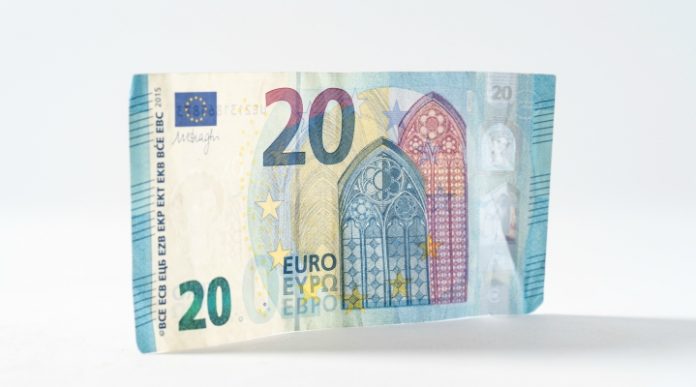The euro pound exchange rate traded in a very tight range on Monday. The rate hit a high of €1.1497 before dropping lower as investors digested reports of a possible recession in the eurozone.
| What do these figures mean? |
|---|
|
When measuring the value of a pair of currencies, one set equals 1 unit and the other shows the current equivalent. As the market moves, the amount will vary from minute to minute. For example, it could be written: 1 GBP = 1.13990 EUR Here, £1 is equivalent to approximately €1.14. This specifically measures the pound’s worth against the euro. If the euro amount increases in this pairing, it’s positive for the pound. Or, if you were looking at it the other way around: 1 EUR = 0.87271 GBP In this example, €1 is equivalent to approximately £0.87. This measures the euro’s worth versus the British pound. If the sterling number gets larger, it’s good news for the euro. |
The pound received a small boost from encouraging house price figures This was some welcomed good news after last weeks disappointments. Last week economic data showed that the UK dominant service sector activity had slowed considerably, and the UK construction sector had contracted in March. These figures have thrown some uncertainty onto the possibility of an interest rate rise by the Bank of England in May. Market participants remain split as to whether the central bank will hike rates given the weaker state of the economy or whether policy makers will focus on the fact that the weakness in March is weather related and therefore just a bump in the path, rather than a more permanent change. As a result, the pound remains relatively well supported.
| Why do raised interest rates boost a currency’s value? |
|---|
| Interest rates are key to understanding exchange rate movements. Those who have large sums of money to invest want the highest return on their investments. Higher interest rate environments tend to offer higher yields. So, if the interest rate or at least the interest rate expectation of a country is relatively higher compared to another, then it attracts more foreign capital investment. Large corporations and investors need local currency to invest. More local currency used then boosts the demand of that currency, pushing the value higher. |
Today the BoE Chief Economist Haldane will give a speech. Investors will be keen to see whether he will sound supportive of a more aggressive rate of hiking, which would indicate a rise in May. Should this be the case the pound could rally strongly versus the euro.
Is The Eurozone Heading For A Recession?
Much like the UK, last weeks eurozone data did little to inspire buyers of the euro. The disappointment continued on Monday with Germany’s trade balance results showing disappointing drops in both imports and exports. This year has been the weakest year for German trade since 2009 and adds to falling retail sales, slumping industrial production and sluggish construction. The picture is pointing to slowing momentum and even fears of a recession in Germany, the powerhouse of Europe.
| Why does poor economic data drag on a country’s currency? |
|---|
| Slowing economic indicators point to a slowing economy. Weak economies have weaker currencies because institutions look to reduce investments in countries where growth prospects are low and then transfer money to countries with higher growth prospects. These institutions sell out of their investment and the local currency, thus increasing supply of the currency and pushing down the money’s worth. So, when a country or region has poor economic news, the value of the currency tends to fall. |
Data for the eurozone for a while has also been showing a distinct lack of momentum compared to last year. Monday’s confidence index showed a large drop in eurozone confidence. These concerns are weighing on sentiment for the euro. This is because market participants are starting to fear that the European Central Bank may not end the quantitative easing programme in September if the eurozone economy is starting to look fragile and confidence is low.
|
This article was initially published on TransferWise.com from the same author. The content at Currency Live is the sole opinion of the authors and in no way reflects the views of TransferWise Inc. |





